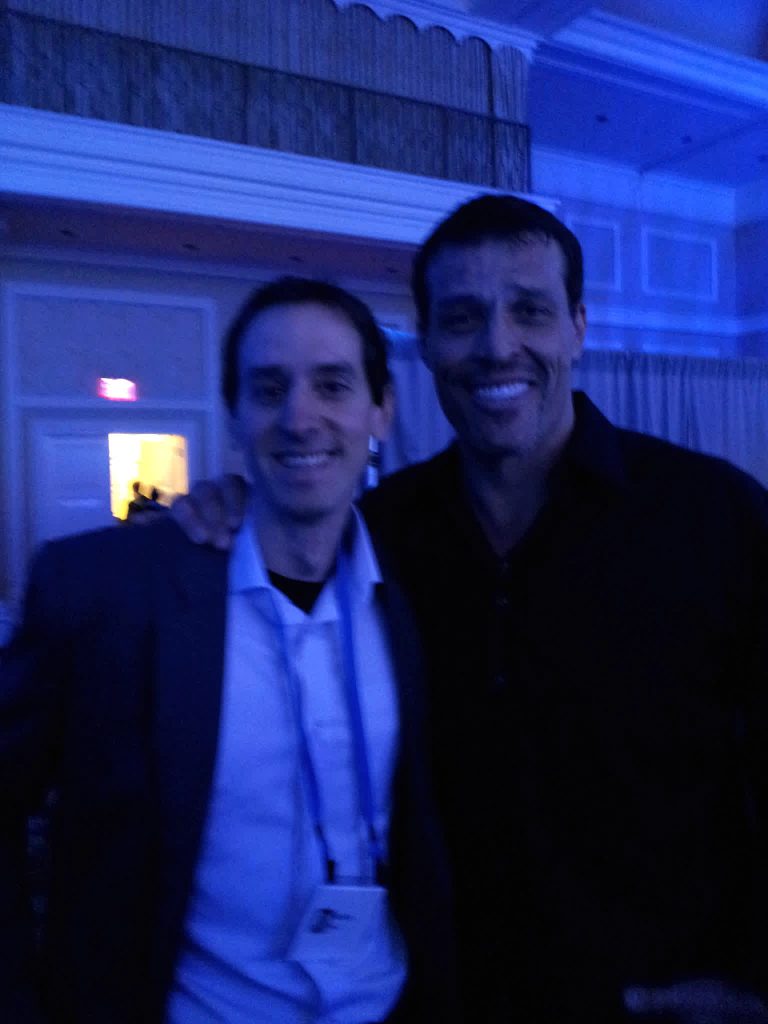I first discovered Anthony Robbins through his books when I was a teenager, living in France at the time. Tony is senior to me by a few years, almost enough that he could be my Dad, although he would have been a very young Dad.
I followed Tony throughout his career, although less actively in the past decades. By chance, we had the opportunity to meet and discuss one to one in Las Vegas a few years ago. I never thought our paths would across, but you know how life puts people on your way in circumstances you did not imagine possible?
What can we learn from Tony Robbins? Here is what I feel are the top 7 insights that he brought to my thinking.
1. Most people overestimate what they can accomplish in one year, and underestimate what they can do in ten
Things can sometimes look easy, and even reasonably feasible when we are in the process of setting goals, and planning. Tony noticed that in reality, things can be harder, and take longer than anticipated. A year looks like a lot of time, and a lot of effort, enough for us to accomplish what we set ourselves to. But in most cases it isn’t enough time, and people give up. The last point bears repeating: people give up.
But it doesn’t have to be that way. If you stick to something long enough, and continue making progress, you can not only achieve your objectives. You can do even more than you dreamed possible in the first place. We have no idea what we can create over a decade, if we set our mind to it, and apply it relentlessly each day of this time period.
2. The state of your body influences the state of your mind
The more time goes by, the more I see this as true. If we don’t leave a desk, or a building or a house for an entire day and do no exercise, it’s much more likely that we’ll feel anxious or down, compared to being able to elevate our heart rate by walking up stairs, going for a walk or a run. Even the fact of raising our head, looking up and raising our arms has an effect on the spirit. This imperfect science gave birth to the field of neuro-linguistic programming, which combines tuning our physiology and our mind to attain the goals we set.
3. You can program yourself to improve
We are creatures of habits, running mostly on auto pilot. It took you, for example, several years to learn to type on a computer keyboard. The first steps were slow and very prone to errors. Then over time, these conscious finger movements became unconscious, and you also became much faster and more reliable in the skill of typing. The same goes to driving a car, skiing, pick your skill.
In addition, practices such as meditation and mental programming can help us further tune how we see the world, what we prioritize, how we react to events, and how generally to focus our energy toward our goals.
4. Leaders are readers
For anything you want to create, or achieve, or problem you want to solve, someone has already faced this problem and wrote about it. Save yourself time. Explore the paths that others took. Find as much science as there is on the subject. And if you learned something you want to share, make your knowledge accessible to others in return.
5. Human nature seeks certainty
When I finally met Tony on this day of 2012 in Las Vegas, something he said resonated more than the rest. It felt special not because it is such a revelation, but because I hadn’t heard Tony explain it this way before – not in his books, not in previous talks that he gave.
Here it is: the world seeks certainty, and yet it’s for the most part uncertain. We don’t know if a product is good or bad. We don’t know well how to decide with incomplete information. If you are in sales, part of your job is to help your customer make the right decision by guiding them to what they need. Another part of your job is to give people the confidence they may be lacking in making that decision. Giving the world more confidence.
This made me think of Paulo Coelho’s line in The Alchemist: “when you want something, the whole universe conspires to help you“.
6. If you don’t want to get hurt in a relationship, don’t get into one
Don’t expect perfection out of each day, or out of anyone. We’re human beings, and creatures of emotion. Relationships mean commitment. Tony was laughing, and asking this question to the audience: “who’s ever been hurt in a relationship, raise your hand!”. Imagine the amount of hands up. For the most part, and in spite of their imperfection, relationships bring joy and meaning to our lives.
7. Life is a game
Things can look very serious sometimes, and it can be helpful to take some perspective. Don’t take what’s not that serious too seriously. If it works out, great. If it doesn’t work, learn from it, move on and keep your enthusiasm.


Leave a Reply